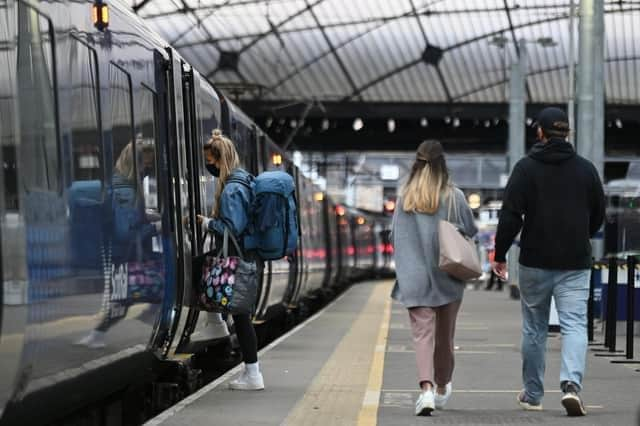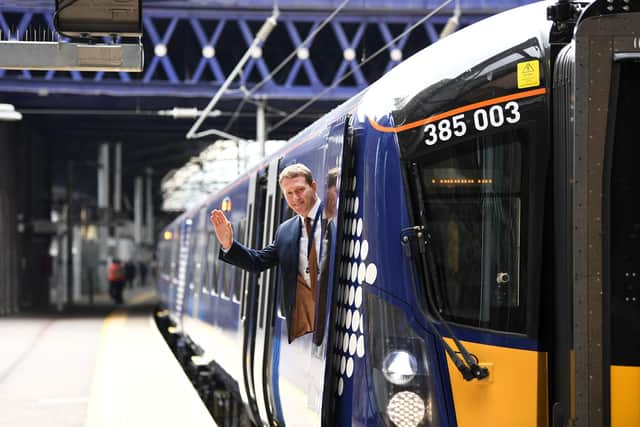ScotRail peak fares suspension an inspired move, but will it risk overcrowding? – Alastair Dalton
At nearly £29 for a day return between Scotland’s two largest cities, most people taking a leisure trip from Glasgow to Edinburgh or vice-versa would wait until after 9am and avoid returning late afternoon to be able to travel for half that price.
Since Covid struck, many commuters, albeit paying less with a season ticket, have made far more radical changes to their work routine, finding working from home or only making occasional visits to the office – like most of my colleagues – suits not only their lifestyle, but also their pocket.
Advertisement
Hide AdAdvertisement
Hide AdIt has turned train travel on its head, making Saturday ScotRail’s busiest day while formerly busy morning “rush hour” trains are strangely quiet.


That presents a huge challenge for the train operator, whose revenue has already further dwindled by a six-month delay to the annual fare increase, which was also below inflation when introduced this month.
The railways are hugely expensive to run. Trains are not like buses on roads, shared with other traffic. By their very nature, they operate on an entirely separate network with their own tracks, signals and stations.
Upgrades such as electrification costs a pretty penny on a network used by only a small fraction of the population compared to other travel modes.
Against this backdrop, and on the face of it, the experimental scrapping of peak fares from October is an inspired move, potentially putting a faster and greener way to get to work within reach of more people. It may have been announced as a response to the cost-of-living crisis, but ministers also need to persuade large numbers of people to switch from their cars to meet the Scottish Government’s extremely ambitious target of reducing road traffic by 20 per cent by 2030.


For the many motorists who haven’t travelled with ScotRail for a while, if not ever, they may be pleasantly surprised by its comfortable, newish fleet of electric trains, which operate on routes across the Central Belt, including the main Edinburgh-Glasgow line. For other inter-city travel, where peak fares apply, ScotRail’s refurbished Inter7City fleet is a world apart comfort-wise from the trains’ predecessors.
Much travel, particularly commuting, and especially if you have a car, involves sticking to what’s convenient. I certainly remember that from my long-gone days of driving to work. But the opportunity to travel without higher fares might just tempt some to give the train a try.
This could be particularly attractive around Glasgow, on Britain’s largest suburban rail network outside London, where historically, train fares have been kept down, making some rail journeys cheaper than by bus.
Advertisement
Hide AdAdvertisement
Hide AdHowever, with opportunities there are also risks. ScotRail says it has plenty of spare seats, but one well-placed insider has told me there’s a risk of overcrowding, such as when both shoppers and workers want to take the same train home.
Arguably, trains will have to be fuller than some passengers would like to make this trial a success. But if they become too full, that could put some people off. It will be a delicate balancing act, but I don’t think anyone can yet confidently predict the outcome.
Comments
Want to join the conversation? Please or to comment on this article.